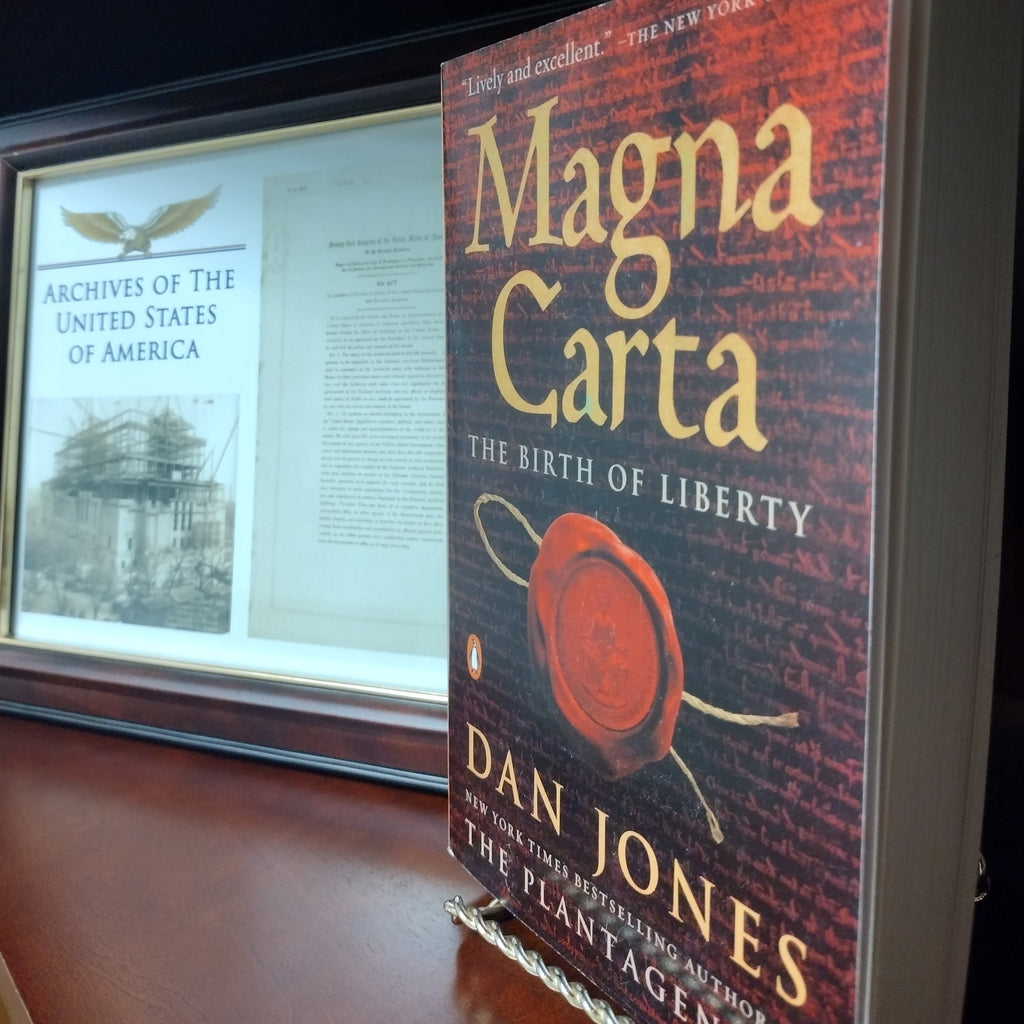
Magna Carta: The Birth of Liberty
- By Dan Jones
- Paperback: 304 pages This item is not eligible for discounts unless explicitly mentioned in promotional offers
-
The Magna Carta is revered around the world as the founding document of Western liberty. Its principles—even its language—can be found in our Bill of Rights and in the Constitution. But what was this strange document and how did it gain such legendary status?
Dan Jones takes us back to the turbulent year of 1215, when, beset by foreign crises and cornered by a growing domestic rebellion, King John reluctantly agreed to fix his seal to a document that would change the course of history. At the time of its creation, the Magna Carta was just a peace treaty drafted by a group of rebel barons who were tired of the king’s high taxes, arbitrary justice, and endless foreign wars. The fragile peace it established would last only two months, but its principles have reverberated over the centuries.
Jones’s riveting narrative follows the story of the Magna Carta’s creation, its failure, and the war that subsequently engulfed England, and charts the high points in its unexpected afterlife. Reissued by King John’s successors it protected the Church, banned unlawful imprisonment, and set limits to the exercise of royal power. It established the principle that taxation must be tied to representation and paved the way for the creation of Parliament.
In 1776 American patriots, inspired by that long-ago defiance, dared to pick up arms against another English king and to demand even more far-reaching rights. We think of the Declaration of Independence as our founding document but those who drafted it had their eye on the Magna Carta. -
Latin for "Great Charter," the Magna Carta was drafted in 1215 as an agreement between King John of England and a group of rebel barons. Despite neither side standing by their commitments, it was originally intended to make peace between the unpopular king and the barons by preserving church rights, protecting the barons from illegal imprisonment, allowing access to swift justice, and limiting feudal payments to the crown. Undergoing successive changes, annulment, and reissues, the 1217 document became known as the Magna Carta to distinguish it from a smaller charter that was also issued at the same time.
The charter became part of English political life and was typically renewed by each monarch, later losing practical significance as the Parliament passed new laws. There was an upsurge in interest in the Magna Carta at the end of the 16th century, and it influenced the early American colonists and the formation of the American Constitution in 1787.
On display at the National Archives, courtesy of David M. Rubenstein is one of four surviving originals of the 1297 Magna Carta. This version was entered into the official Statute Rolls of England.